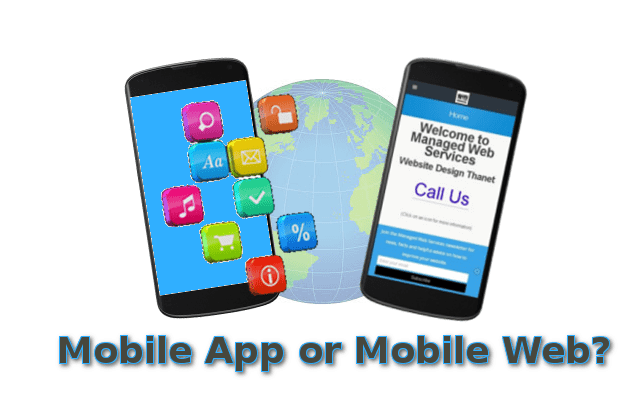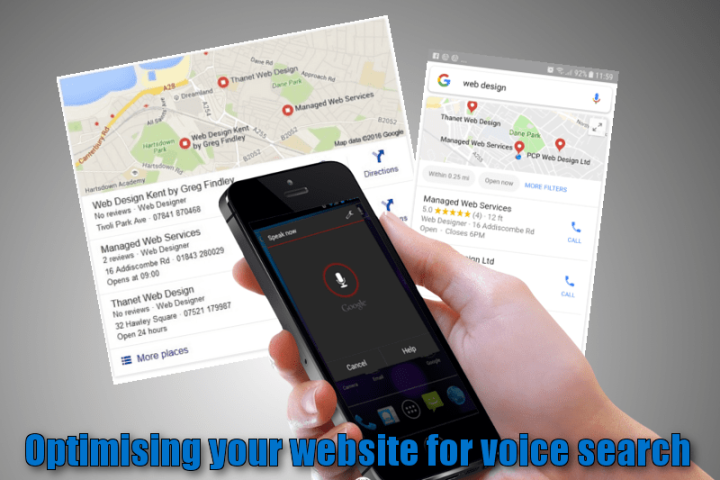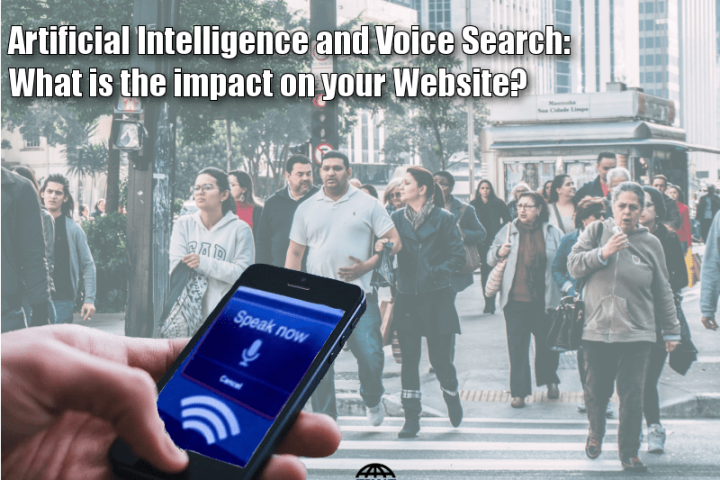Three Mobile Solutions.
People in the UK now spend twice as long searching the internet using a mobile phone than with a computer. The whole search landscape is changing. Google’s Mobile First Index means that the mobile version of your website has become the default version that Google uses for ranking purposes. The increasing use of Artificial Intelligence , digital assistants and voice search are having a major impact on the way that people use websites. The user experience (UX) is in turn changing the design of websites. With all these changes and the increasing dominance of mobile, the question arises: What is the best way for your business to go mobile?
There are three options:
1. Responsive Web Design
2. Mobile Website
3. Mobile App
Responsive Web Design.
The most popular solution to providing a mobile solution for businesses is the Responsive web design. Responsive web design allows you to have a single website which automatically adjusts its size to fit the screen of the device on which it is being viewed. The responsive website adapts the size and orientation of the content, design, navigation and method of interaction of the website. The aim is to deliver an appropriate user experience both to the mobile user as to the desktop user.
Benefits:
1. It is simpler to administer and maintain one website across all devices.
2. The content for computer and mobile device is consistent. Consistent content provides the same SEO benefits to mobile and computer users.
3. One website across all platforms is easier to market.
4. One Website address for all devices can make it easier for users to find your website on a mobile device. There is no need to wait for redirects, this can be particularly useful when using a slower connection.
5. One website costs less than having additional dedicated mobile websites or mobile apps.
Disadvantages:
1. A single website across all platforms can sometimes be a disadvantage. To get the full advantage of the mobile device you may need to put different emphasis on the same page in order to maximize conversions.
2. Website Design is all about the User Experience (UX). The Mobile UX is completely different from the Desktop UX. A Responsive Website is a compromise and may harm your overall UX on both platforms. If you try to satisfy both mobile and desktop users with the same user interface, you may end up satisfying no one.
3. There are sometimes technical issues with Responsive Web design when using some outdated devices with old browsers that will load the website too slowly.
Mobile Website.
A mobile website is designed specifically for mobile devices. Mobile websites are designed for the smaller screen, for touch or tap as a method of interaction rather than the keyboard and mouse. The mobile devices have far less computing power than a desktop and variable connection speeds. The mobile content must be easily accessible, fast-loading and readable. As different mobile devices have varying screen sizes and interaction types, it means that even mobile websites have to have a responsive element to fit every screen. Generally mobile websites have their content organised into a single column for easier access.
Benefits:
1. In theory a dedicated mobile website should provide a better mobile UX, utilising the benefits and limitations of a mobile device.
2. Mobile websites should load faster and more easily on mobile platforms.
3. Mobile websites should benefit from local searches. Websites which are specifically optimised for mobile have better chances to rank higher in local searches..
4. Mobile websites and Responsive websites, are easier to access than Mobile Apps apps, where users have to download and install the App first.
Disadvantages:
1. Two Website addresses means that users have to remember two URLs, or be redirected to the mobile website, which slows down the load time.
2. The mobile website will need its own SEO unlike the Responsive website which has common SEO.
3. Two websites means double the maintenance.
4. Mobile Websites may not be compatible with older mobile devices. There are two different types of mobile devices: touchscreen and keyboard navigation. A single mobile website won’t look and work the same way across all device types.
Mobile Apps.
A Mobile app is software specifically developed for a mobile device. Mobile Apps are designed to work with specific operating systems and are not common across all devices. Users have to download the app from a specific OS store, like Google Play or the Apple Store and install it on the mobile device. Mobile Apps are flexible and not only provide all the features of a desktop website, but also mobile-specific features such as use of camera, click-to-call buttons, GPS data or NFC, contacts or galleries etc.
Benefits:
1. The mobile App should provide the best UX available on a mobile device as it is designed for that device’s operating system.
2. Once the App has been downloaded it can operate without an internet connection.
3. The App is much faster than a mobile website or responsive website.
4. The App is highly visible once installed on a mobile device, it stays there, showing up with its unique icon in apps menu.
Disadvantages:
1. Apps are specific to a particular operating system and therefore not accessible on all devices.
2. All application updates will have to be submitted and approved by the app store every time, which can take up to a few weeks. Not every user will be happy with frequent updates and some will stay with the older version anyway.
3. Mobile Apps can be expensive. Not only is it expensive to develop the App, but it has to be developed a for at least three platforms, Apple, Android and HTML5.
4. Mobile Apps require a separate SEO and Marketing strategy to promote their take up .
Which Mobile Solution is best for your Business?
For most businesses the Responsive Web Design provides the best mobile solution. Some businesses will benefit from the better UX provided by mobile websites, e-commerce sites selling Fast Moving Consumer Goods or Fast Food outlets for example. The Mobile App tends to be the preferred option in the following circumstances:
• Interactive games: An App is almost always going to be the best choice.
• Services requiring some degree of Personalization or Regular Usage: If your target users are going to be using your app in a personalized fashion on a regular basis then an app provides the best solution.
• Complex Calculations or Reporting: If you need to input data and manipulate it with complex calculations, or produce charts or reports. Banking or Investments for example, then an App will allow you do that very effectively.
• Native Functionality or Processing Required: Mobile web browsers are getting increasingly good at accessing certain mobile-specific functions such as click-to-call, SMS and GPS. However, if you need to access a user’s camera or processing power an app will still do that much more effectively.
• No connection Required: If you need to provide offline access to content or perform functions without a network/wireless connection then an app makes sense.




